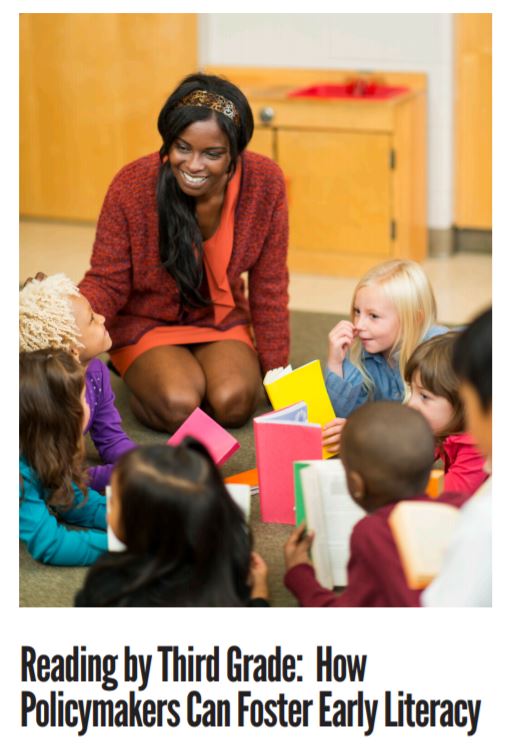Word Callers: The forgotten children of the great debate in reading by Dr. Sam Bommarito
Last week I talked about the early childhood aspects of the historic ILA session led by P.D. Pearson and Nell Duke. This week I had intended to wrap things up, focusing on the issues surrounding comprehension. I’m postponing that until next week because of some new information about word callers that I found. It came from one of the informational pieces Nell Duke provided. I thought it was important enough to rate its own blog entry.
Regular readers of the blog know that I often try to call attention to the needs of all readers, not just those who need intense, direct, systematic phonics. You see, there are some readers for whom an intense, direct instruction synthetic phonics approach doesn’t work. They exist. I know they exist because just this morning, on a readings coach’s Facebook site, teachers were talking about such a student. I know they exist because, over the years, I’ve had first-hand experience with some. I also know they exist because Simple View of Reading folks have never produced the “works with almost all the children almost all the time” study. (In fairness, neither have the constructivists!).
Today I want to turn my attention to another group of children whose needs are sometimes neglected and ignored. Word Callers. I know they exist. Back in the day, I worked with them in all my Title One programs. However, when I blogged about them Science of Reading advocates were quick to discount what I had to say in those entries. They claimed I was raising a red herring, that Word Callers didn’t exist in large numbers (they only look at the ones resulting from Hyperlexia, so their count is very low), and that they couldn’t be created by programs that overemphasized decoding.
On the other hand, my own direct experience was giving me information contrary to what the Science of Reading folks were claiming. I am active in several different literacy organizations. I often talk to literacy leaders from different districts in my area. Some of them reported that they felt that, in their districts, word callers were the most significant issue. Far more of them than students who couldn’t break the code. That demonstrates that, in these places, progress is being made in teaching decoding. Frequently these were districts in which overall test scores were well above average. In the research process outlined by P.D. Pearson, when observations like that come up, it means it’s time to do some research and/or find some relevant research. Boy did I ever find some relevant research.
I found it in the article, Reading by Third Grade: How Policymakers Can Foster Early Literacy.

Here’s the highlight of what was said in Nell Duke’s handout that really caught my attention:

Not only do word callers exist, but they account for a significant (my emphasis) number of those who struggle on state tests of reading. This squares perfectly with what my literacy leader friends were finding in their districts. It is very difficult to see how the simple view of reading’s current practices on how to handle comprehension can possibly provide for what these children need. Much more on that point next week.

For the moment, let’s just say these children need direct intense work in comprehension. For readers who want to read more about some research-informed things that can be done to help these students see Word Callers by Kelly B. Cartwright. Nell Duke is the editor. It is informed by research. There are 16 pages of citations at the end, from peer-reviewed journals. In personal correspondence, the author, Kelly B. Cartwright offered to provide additional research as well. The book is readily available from any number of on-line sources. It has already become one of my go-to professional books. I now keep a copy on my desk.
Next week I will return to my series about the ILA presentation. In part 3, I will address what was said about comprehension. I will discuss why comprehension, especially comprehension at the level required by state tests in reading, is not something kids can learn “naturally.” There must be direct and systematic teaching of the things needed for that level of comprehension to occur. Until then,
Happy Reading and Writing
Dr. Sam Bommarito (trying to find ways to meet the needs of ALL students in literacy)
Copyright 2019 by Dr. Sam Bommarito. Views/interpretations expressed here are solely the view of this author and do not necessarily reflect the views of any other person or organization.
P.S. If you found the blog through Facebook or Twitter, please consider following the blog to make sure you won’t miss it. Use the “follow” entry on the sidebar of the blog.

Another wonderful post, Sam. Thank you. I agree with you.
Thank you!!
I appreciate that you truly are making it about ALL the learners.
Thanks. Reading is a complex process and should be treated that way. One size has never fit all. But we can learn things from many places if we just keep an open mind.
The thing I don’t understand about word-callers is this: when they have just successfully “called” a written word (by speaking it aloud), why don’t they understand what they have just said? For instance, if there is a sign on a box that says: “There is candy for everyone in this box,” and you ask them to read the sentence aloud, and they read it aloud correctly, why don’t they understand (from what they have just said) what is in the box?
Pingback: Learning to Play with Three Strings: Why I Defend the use of both Balanced Literacy (Constructivist Practices) and Direct Teaching (Behaviorist Practices) in Our Literacy Programs Today by Dr. Sam Bommarito | doctorsam7
Pingback: Penny Slater & Kathy Roe talk about the amazing impact of teaching prosody: An Interview by Dr. Sam Bommarito | doctorsam7